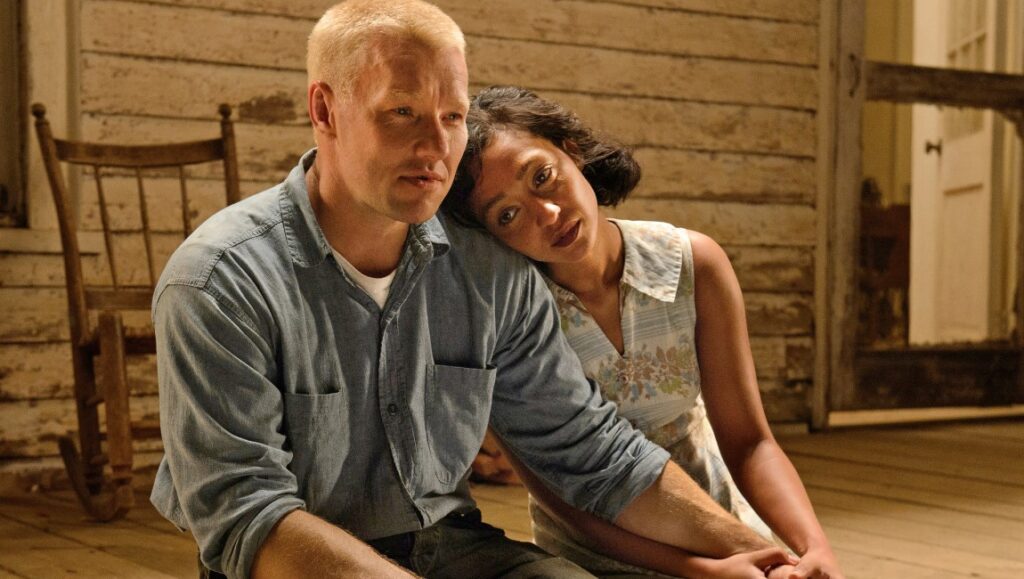Cinema’s nominal purveyor of ruralism, most successfully of the Southern sort, Jeff Nichols is the de facto director to handle a story such as the one told in Loving. Surprisingly, though, he struggles just to stay afloat here, forced to navigate the thankless detritus of this true-story narrative. Doing his best to actively work against the typical prestige-film plot rhythms of the script, Nichols wisely opts to dial everything down to four where a lesser director may have ratcheted things to eleven. It’s a decision that facilitates the film’s best tendency, with Nichols delivering intimately low-key domestic exchanges between leads Joel Edgerton and Ruth Negga and reveling in the waves of palpable tension that crash upon his characters—and he does all this without surrendering to any histrionic thriller flourishes. Worrisome elements, like a small town sheriff who projects early on as the film’s ostensible, facile villain, prove red herrings in Nichols’s hands, teasing what a by-the-numbers rendering of this story would look like before subverting expectations. But despite a handful of standout moments sprinkled throughout and the film’s relative, functional sturdiness, Loving is largely a film comprised of muted highs and evaded lows, resulting in something that feels preventative. It’s as if Nichols saw all that could go wrong and worked only to avoid it, not transcend or transform. That’s hardly an achievement.
Published as part of Toronto International Film Festival 2016 | Dispatch 2.


Comments are closed.